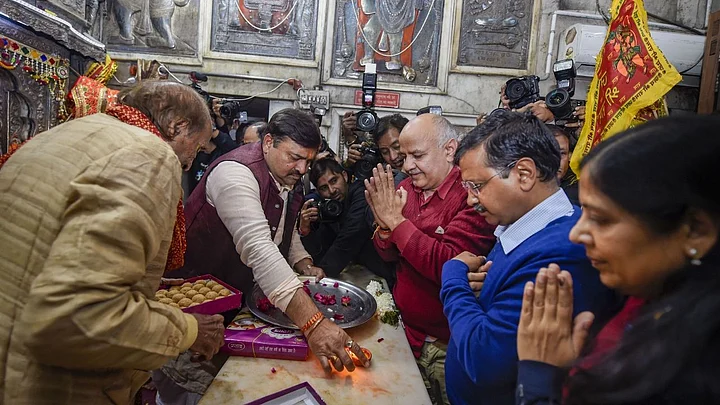It will still take time for AAP national convenor Arvind Kejriwal to emerge as a "national leader" despite his party coming to power in Delhi for the third consecutive term, experts opined on Tuesday, 11 February.
The experts said Kejriwal would need to have a pan-India base to establish himself as a national leader.
The AAP is at present recognised by the Election Commission as a state party. It emerged as the principal opposition in Punjab in 2017. However, its national ambitions suffered a setback when its campaigns in Goa and in the last two Lok Sabha elections were unsuccessful. It won four Lok Sabha seats in Punjab in 2014 and just one in 2019, while Delhi voters rejected it both times.
Kejriwal also burnt his fingers in 2014 when he contested against Narendra Modi, who was the BJP's prime ministerial candidate, in the Varanasi Lok Sabha seat, losing by over three lakh votes.
Many saw a shift in the AAP’s strategy after the party’s drubbing in the 2017 civic polls in Delhi at the hands of the BJP, as it again focussed on its development pitch in the national capital.
"It is still early to say that because it was a local election and of course, there is a positive platform on which he contested but whether he can replicate it at an all-India level is difficult to say. His party doesn't have any substantial base or party infrastructure. It is premature," said Sanjay Pandey, a political analyst and JNU professor.
Kamal Chenoy, JNU professor, said the Indian polity is "very complex" where people have different ideas.
"For Arvind to be an all-India leader would take time. But what he has done has shown that there is some different kind of argument by using whatever the people need and giving them empowerment so that is important. He will grow but becoming national is going to take time," he said.
Chenoy said these elections gave the AAP a kind of empowerment which will help it get support of other opposition parties that have been trying to put up a united front against the BJP.
"The BJP is upset because now Arvind has got his foot in the door and the AAP is going to move on from here," he added.
Jagdeep Chhokar, one of the founding members of the Association for Democratic Reforms, said the AAP has to do a lot more before they go national.
"Going national is a very different level of activity. Last time, in national elections they contested around 400 seats, they had no clue who they had nominated as their candidates," Chhokar said.
(At The Quint, we question everything. Play an active role in shaping our journalism by becoming a member today.)
